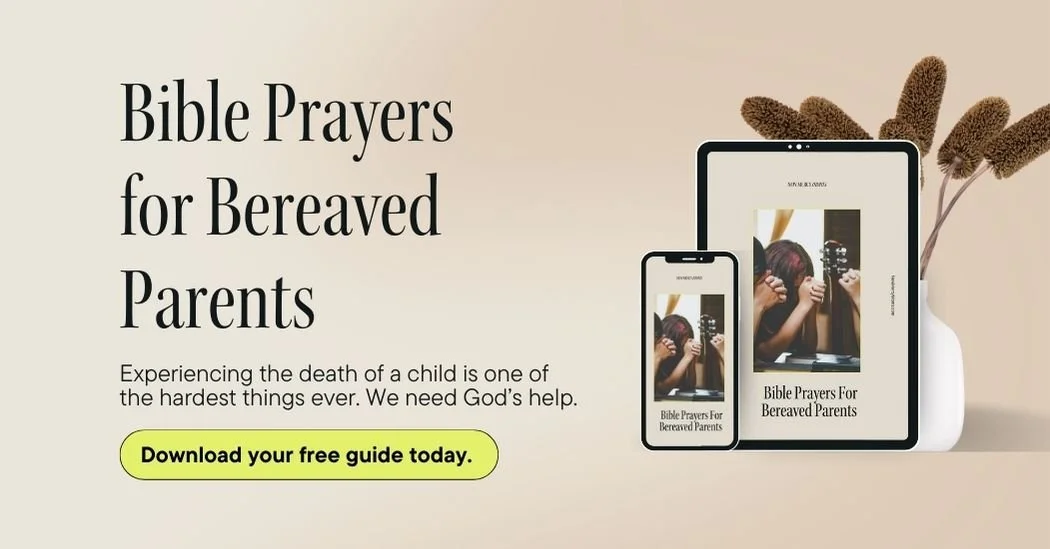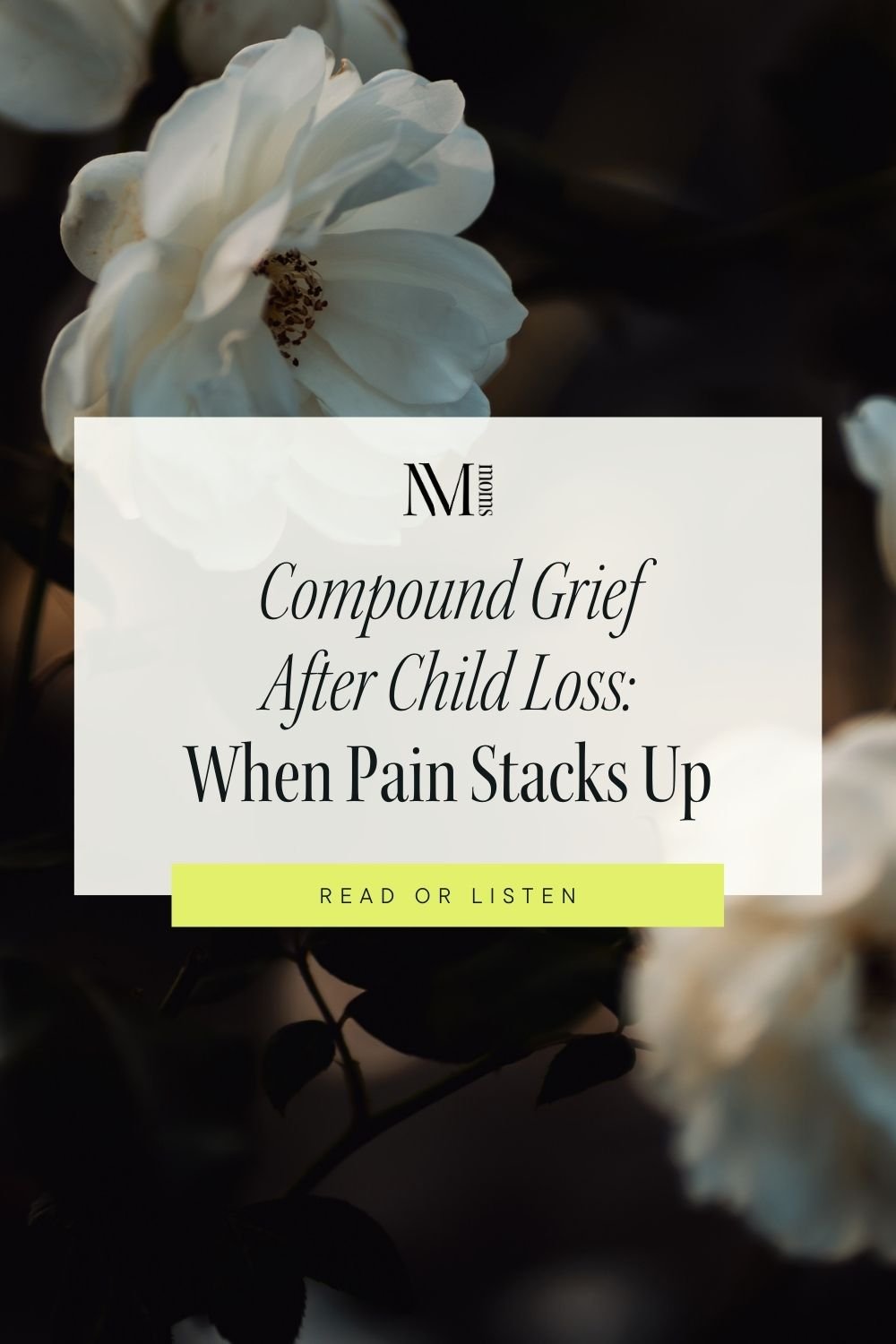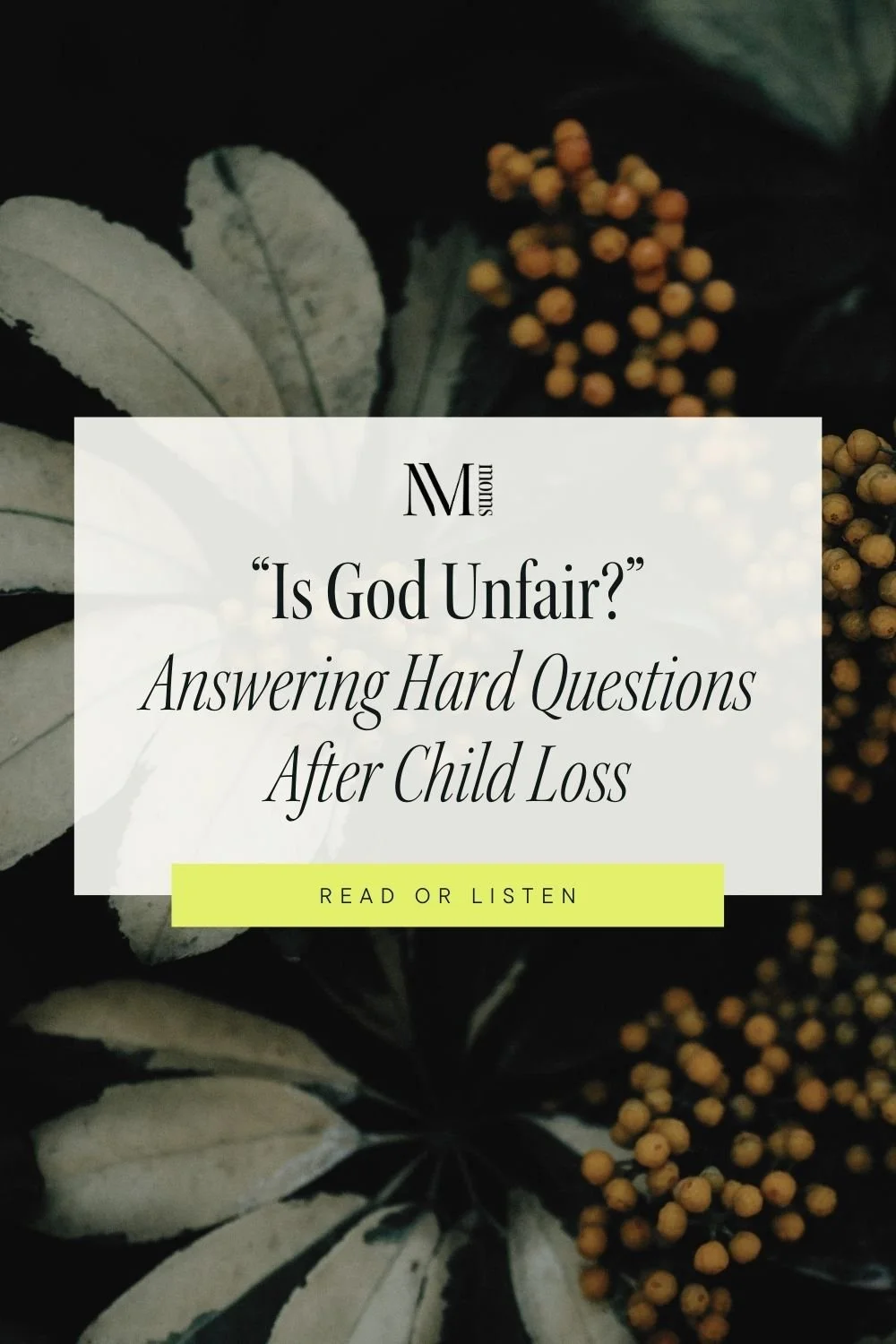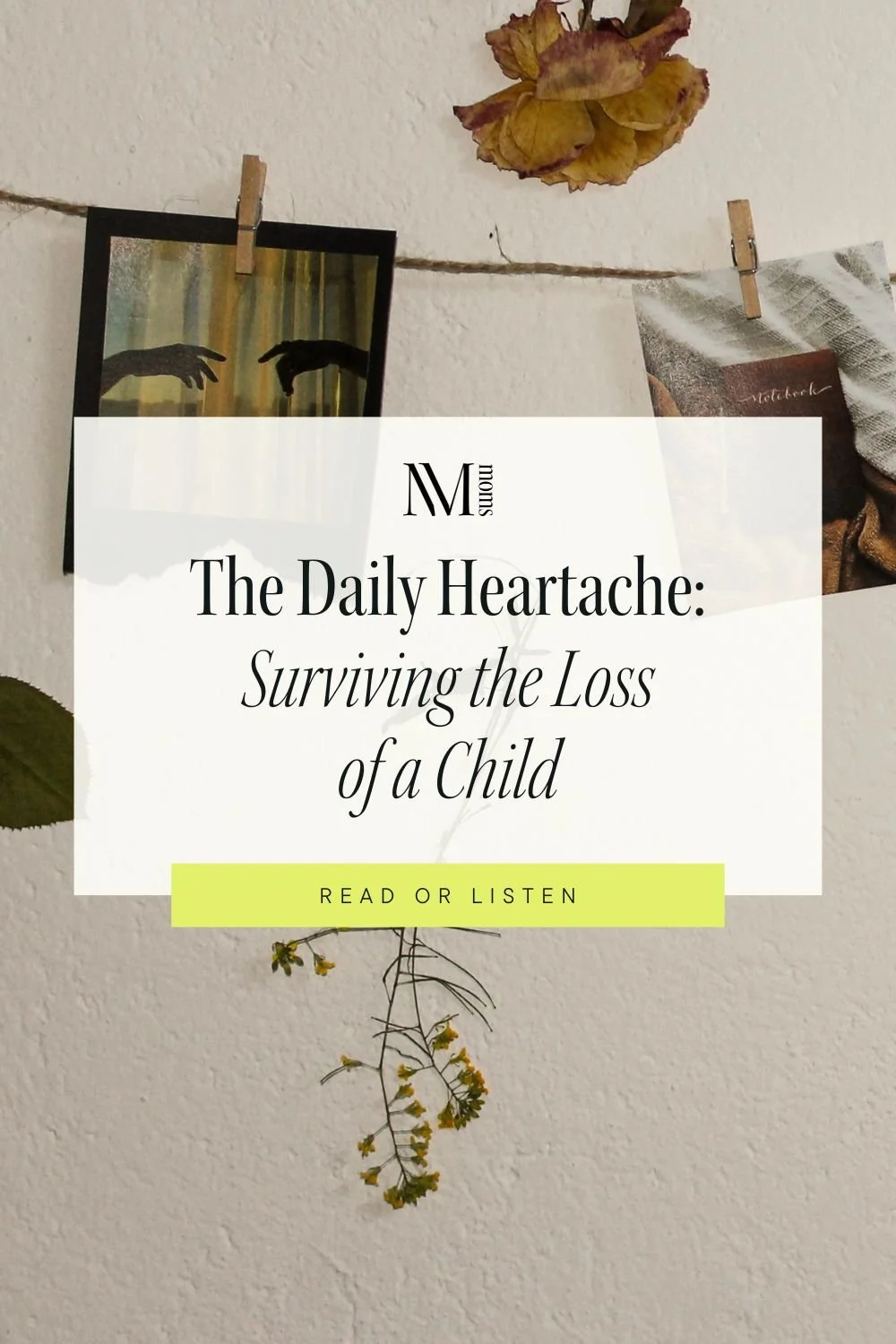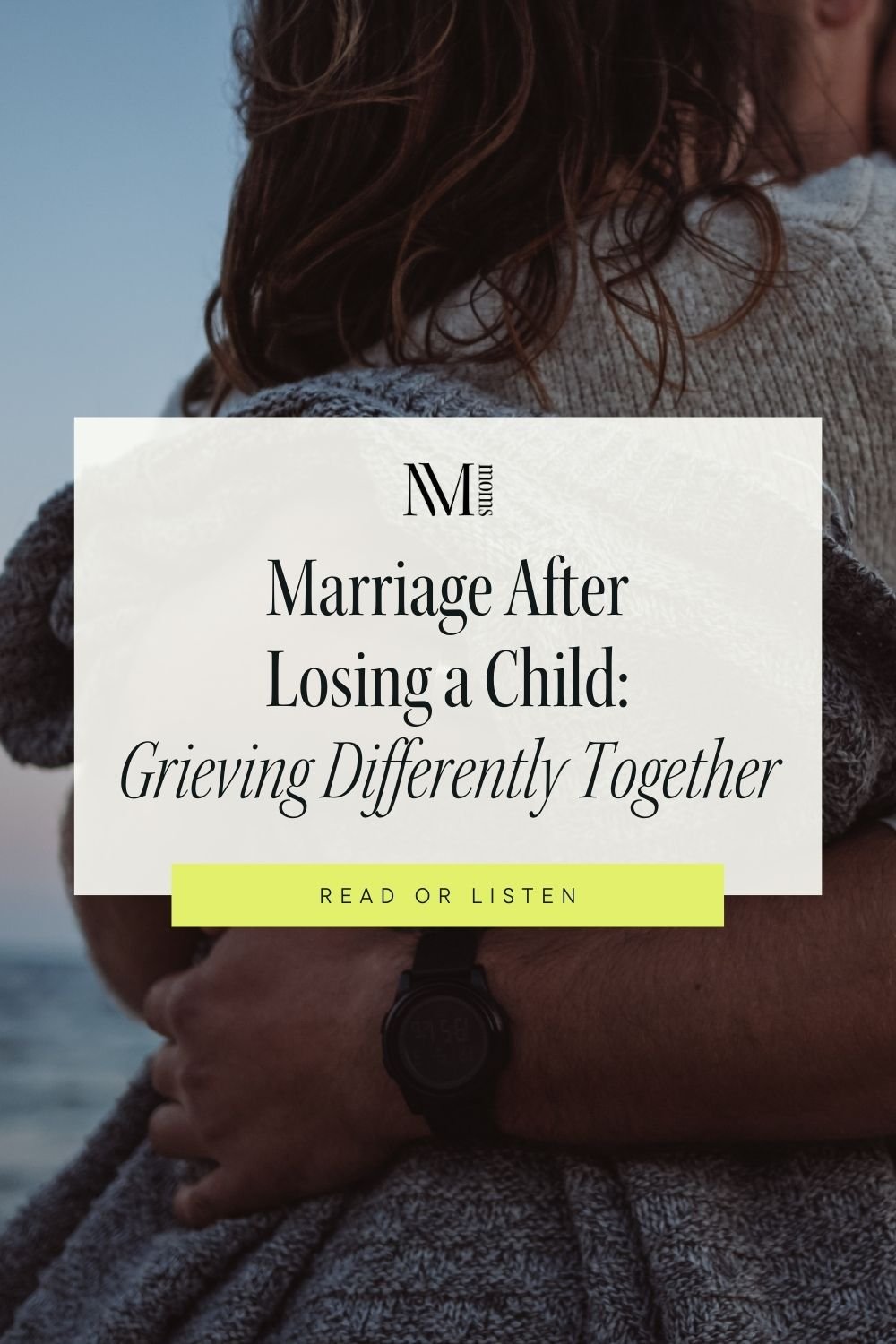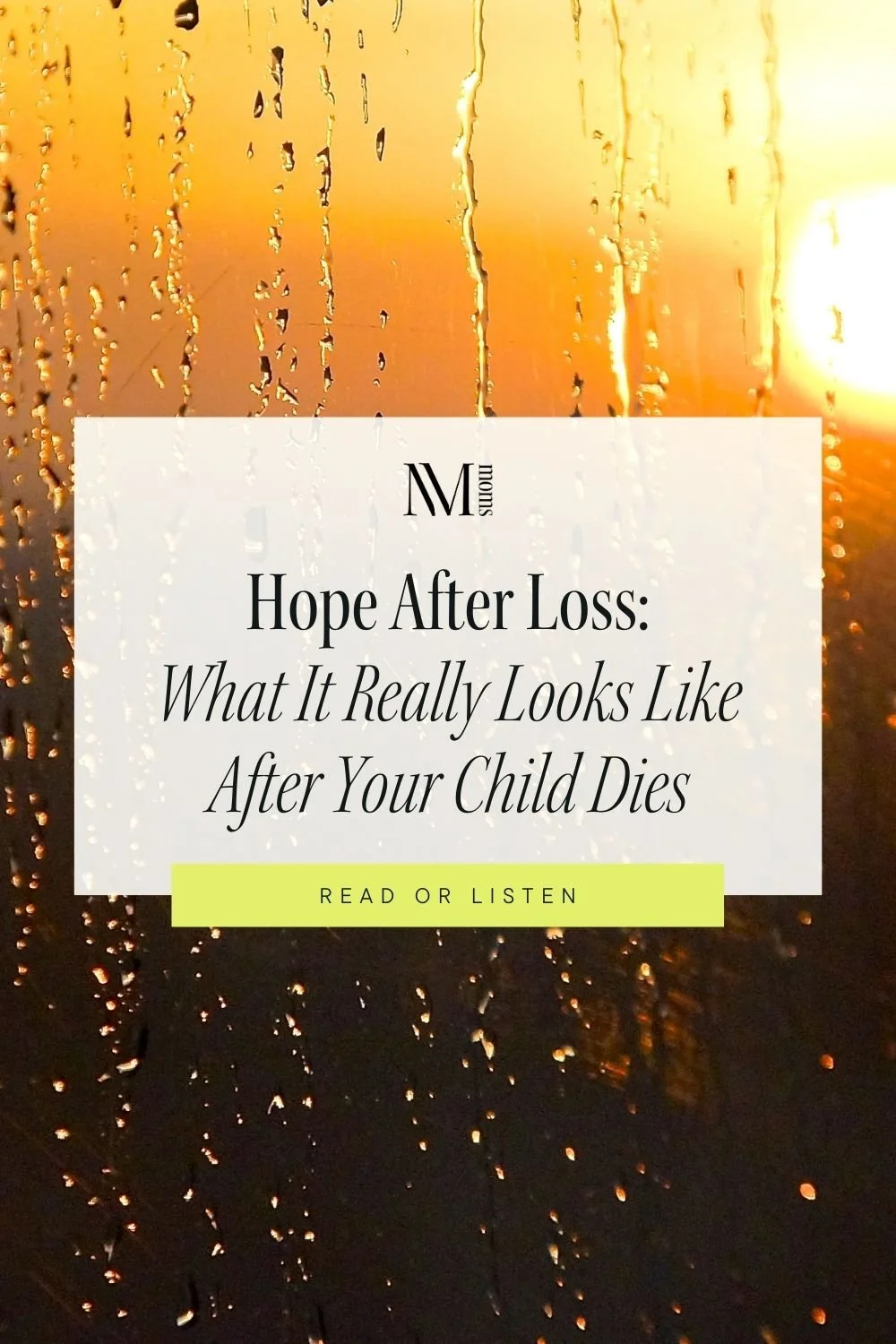What To Do When You’re Mad At God For the Loss of Your Child
Table of Contents Show
It is so hard to lose your child.
There are so many thoughts and feelings that flood your mind and heart. It’s hard to sort through it all and process it. Give yourself grace and time, and be okay with taking a step or two forward and a step or two back.
Mad at God
Have you gotten mad at God for the loss of your child? Anger is a normal response to loss and trauma. Staying there and letting it fester may not be healthy, but experiencing it is totally normal. While there is no specific, universally accepted list of stages of grief for Christians across the board, most agree that the following are normal aspects of grief:
Denial and Shock
This initial stage is characterized by disbelief and numbness in response to the loss. As a Christian, you may find comfort and understanding during this time by seeking solace in prayer and Bible reading.
Anger and Frustration
Feelings of anger, resentment, and frustration are a natural part of the grieving process. Please tell these things to God. He’s your Heavenly Father and can totally handle it.
Bargaining
When I lost my son, I couldn’t understand why God would take my child when I tried to do everything right. I was bargaining with the past in a way.
Depression and Sadness
Feelings of profound sadness and depression are common in grief… and I experienced this deeply. While we as Christians can find comfort in knowing that God is present even in their darkest moments and can bring healing and hope, I highly recommend finding a solid counselor or therapist to help work through everything.
Acceptance and Surrender
In this stage, individuals begin to come to terms with the reality of the loss and start to accept it. Honestly, I’d accept it but then struggle a moment later. Back and forth. Back and forth.
Hope and Renewal
This was something that I barely had in the beginning of my grief journey, but over the years it came more and more until it began to characterize my life and mindset. I’m so thankful for that gift from God. I don’t take it lightly.
It's essential to remember that grief is a highly individual and dynamic process, and not everyone experiences these stages in a linear or orderly fashion.
I definitely didn’t.
Pastoral care, counseling, and support from your faith community are valuable resources as you navigate the grieving process. Read our full disclaimer here.
It’s so hard
If you’re reading this post, then you know how hard it is to lose a child. I am guessing that either you or someone you care about has suffered loss. I am so sorry. I already know that there’s really nothing I can say that can truly bring life to a heart that has tasted death so deeply.
But I will say this, which is what my counselor told me:
“Your pain pushes you somewhere. Your pain needs to push you to God.”
I know it’s super hard. But please don’t let your feelings dictate what you do. Really try to think and process through the feelings and the thoughts.
Don’t give yourself a time limit because you’ll probably end up disappointed. Honestly, the loss of your child will be carried in your heart the rest of your life. And if you’re like me, you may find yourself grieving it again in different seasons and stages over the years.
This is why setting up healthy ways to grieve is so important. At first, you have to work at it consciously, but then it becomes a natural response. Kind of like reactionary habits that we don’t think much about, it’s really critical to nurture healthy, faith-filled ways to fully grieve and process the loss of our precious babies.
This is also why I created our guide Grieve Well - My 5 Steps For Faith-Filled Grief.
Silent Treatment?
Sometimes when my husband and I have a disagreement (usually a miscommunication) I have the bright idea to give him “the silent treatment.” We all know this doesn't really help, right? But for some reason I still do it. Thankfully, it doesn’t last long because I feel so desperate to make things right and move on.
About a month after we lost our baby, as I was processing through everything, I was really struggling with being okay with what God allowed. I knew he was sovereign. I knew he was in control. But I didn’t like the result.
Could I really share what I was thinking with God? I know he’s holy, would he hate me for my thoughts about what he allowed?
Even though I seriously struggled with my faith in God and actually wanted to run from him, I still talked with him and told him my pain and all my nasty thoughts. He already knew them anyway, and honestly as my Heavenly Father he can totally handle it.
But here’s the thing – he wanted me to bring my questions (or rather accusations) about his character to him so that he could answer me.
And he did.
It took a loooooong time to gradually get through my thick head. But it did happen.
You may also like:
Bible Prayers for Bereaved Parents
Healing Bible Verses For Miscarriage
Progress
Depending on your faith background, it may or may not seem like a big deal to be mad at God. Is it a sin?
As a mom who has experienced infant loss, the question of whether it's a sin to be mad at God can be deeply personal. It's essential to remember that in times of grief and pain, it's natural to have honest and raw emotions, including anger and frustration.
As I’ve navigated through this difficult journey over almost 8 years, I find comfort in knowing that the Bible contains passages of lament and people expressing their sorrow and confusion to God. Mama, the book of Psalms is FILLED with laments! It reminds me that it's alright to pour out my heart before Him, even if that includes feelings of anger.
Is anger ever justified? Should it be suppressed? Actually, there's a difference between righteous anger – an emotion that arises from injustice and the brokenness of this world – and uncontrolled or sinful anger that can lead to harm and distancing myself from God.
View of God
As a young adult, I had a Sunday School teacher who did a series on our view of God. At the start of every lesson she would have us all say, “My view of God is the most important thing about me.”
When I first heard that I was like, “Whaaaat?? No way! That can’t be it!” But as the weeks of the study went on, I started to see for myself that it really is true.
My teacher actually adapted the famous quote from A. W. Tozer in his book The Knowledge Of The Holy - “What comes to mind when you think about God is the most important thing about you.”
When I’m struggling with anger or being mad at God for my loss, I have to consider — ☝️what is my view of God and ✌️what is informing that view.
Did I read a book that said God promised me good things if I have faith? Did God take away something I believed I deserved — My sweet little baby, my identity as a mom, my plans, my comfort? Did God give me something I feel like I didn’t deserve — Pain, depression, loss, confusion? Am I accidentally taking promises of God out of context?
These are - no doubt - very hard things to process through.
But this is my testimony God has worked in me over yeeeaaarrss: While I would never choose for my baby to die, I would never trade the treasure of Jesus and how he’s met me in my need.
While praying, I try to be open and authentic with God, sharing my pain, questions, and frustrations. Initially, I denied God’s good character. Eventually, I came to believe through reading His Word the Bible that He understands my heart and that He is compassionate and loving, even when I feel upset or distant from Him.
Ultimately, it should be the Bible that forms our view of God. Why? Because this is what he wants us to know about himself. Just like when my husband and I were long-distance dating. If I really wanted to get to know who he was then I wouldn’t phone a friend, I would read the letters he wrote me.
Here are some Bible passages that show us God’s compassion, love, and understanding of our pain.
"As a father shows compassion to his children, so the Lord shows compassion to those who fear him. For he knows our frame; he remembers that we are dust." Psalm 103:13-14
"Come to me, all who labor and are heavy laden, and I will give you rest. Take my yoke upon you, and learn from me, for I am gentle and lowly in heart, and you will find rest for your souls. For my yoke is easy, and my burden is light." Matthew 11:28-30
"For we do not have a high priest who is unable to sympathize with our weaknesses, but one who in every respect has been tempted as we are, yet without sin. Let us then with confidence draw near to the throne of grace, that we may receive mercy and find grace to help in time of need." Hebrews 4:15-16
"The Lord is near to the brokenhearted and saves the crushed in spirit." Psalm 34:18
“Jesus wept." John 11:35
"Can a woman forget her nursing child, that she should have no compassion on the son of her womb? Even these may forget, yet I will not forget you." Isaiah 49:15
"The steadfast love of the Lord never ceases; his mercies never come to an end; they are new every morning; great is your faithfulness." Lamentations 3:22-23
"And he arose and came to his father. But while he was still a long way off, his father saw him and felt compassion, and ran and embraced him and kissed him." (The parable of the Prodigal Son illustrates God's compassionate and forgiving nature.) Luke 15:20
"But you, O Lord, are a God merciful and gracious, slow to anger and abounding in steadfast love and faithfulness." Psalm 86:15
"When he went ashore, he saw a great crowd, and he had compassion on them, because they were like sheep without a shepherd. And he began to teach them many things." Mark 6:34
All passages are taken from the ESV (English Standard Version).Sometimes it really was a struggle to balance my feelings of anger with my desire to trust God's plan and find solace in His love and presence. Some days, I felt overwhelmed and disconnected, but other days, I was able by his grace to find peace and hope in the midst of my grief.
As I continue on my grief journey, I strive to seek understanding and draw closer to God. I look for guidance in the Bible, and I seek support from fellow believers who have experienced loss or who can offer compassion and empathy. And I share what God has been teaching me.
While it's natural to be angry, I remind myself that nurturing my relationship with God and finding ways to surrender my pain to Him can bring real comfort and strength. It's a process of both expressing my emotions honestly and seeking His guidance and grace to navigate this brokenness in my life.
If you are trying to process through your thoughts and feelings about your loss, may I recommend something? Check out New Mercy Moms | the workshop where we deep dive into how to analyze the sentences that permeate our thoughts and feelings and replace them with Truth from the Bible. Really, we’re fighting fears and lies with faith, and we show you exactly how to do it.
Overnight success?
God working the anger out of the heart does not happen overnight. Ok, maybe for some it can seem like that. I had a friend whose sister lost her baby. While she was affected deeply, she still seemed to have a deeper, stronger faith in God. I was amazed. And I praise God for giving her the will and ability to be so faith-filled in one of the hardest trials.
But for others like myself, it may take months or even years of continuously running to God with our pain, our heartache, our confusion, and our anger.
So what’s next?
Mama, if you find yourself wrestling with anger, grief, and questions after losing your precious child, know that you are not alone. The journey of healing and processing through such deep pain takes time, and it's okay to experience a rollercoaster of emotions.
At New Mercy Moms | the workshop, we understand the complexity of grief and offer strategies to analyze your feelings, doubts, and struggles and confront them with Truth. Our goal is to foster faith while fighting the fears and lies that keep us up at night and keep us from treasuring Jesus more than anything.
Just like any skill, nurturing healthy ways to grieve and process your loss takes time and practice. It's not about rushing through the stages of grief but about allowing yourself the grace to take each step as it comes. And most importantly, remember that God is compassionate, understanding, and loving. Being mad at God does not have to be the end of the story. He invites you to bring your pain, questions, and even anger to Him. He can handle it all.
Your pain will push you somewhere - let it push you to God.
Our Bible-based approach in NMM | the workshop will help you find hope and renewal in your journey. While the pain and fears may not disappear overnight, we believe that God's healing Word can transform your heart and bring you closer to Him.
Take that step today and join us at NMM | the workshop. Together, we will learn to replace the lies with the truth from the Bible, finding solace and strength in God's promises. Embrace the journey of healing and growth as you grieve well and draw nearer to our compassionate Savior.
Soli Deo Gloria,
Kathy
What do you think?
Please share in the comments below, I’d love to hear!
If you found this helpful, please share!
As a mom who’s suffered the loss of my child, I know deep heart pain.
I tried to run from God, but he convinced me of his love and comforted my heart with hope and healing in Jesus.
Now, it’s my mission to share this same comfort with others who’ve experienced the pain of child loss.



